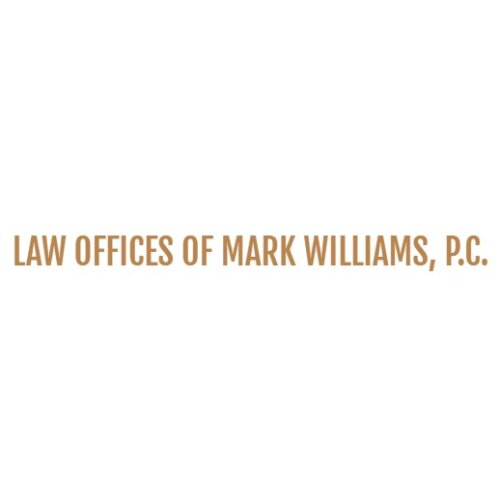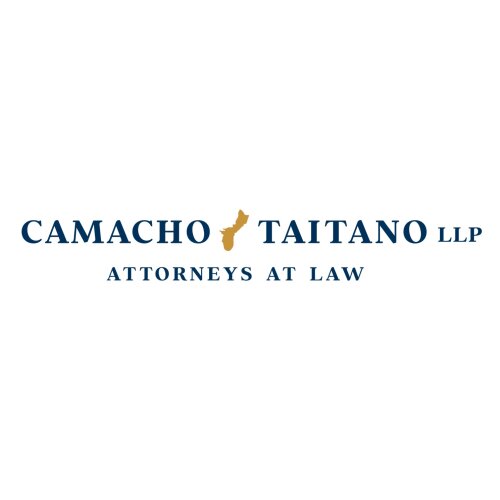Best New Business Formation Lawyers in Guam
Share your needs with us, get contacted by law firms.
Free. Takes 2 min.
Or refine your search by selecting a city:
List of the best lawyers in Guam
About New Business Formation Law in Guam:
New Business Formation in Guam refers to the process of starting a new business entity within the territory. This includes registering the business, obtaining necessary licenses and permits, and complying with local laws and regulations.
Why You May Need a Lawyer:
There are several situations where you may need a lawyer for New Business Formation in Guam. Some common reasons include:
- Legal advice on choosing the right business structure
- Assistance with drafting and reviewing important legal documents
- Guidance on compliance with local laws and regulations
- Representation in legal disputes or transactions
Local Laws Overview:
Key aspects of local laws relevant to New Business Formation in Guam include:
- Business licenses and permits requirements
- Tax regulations for businesses
- Employment laws and regulations
- Contract laws
Frequently Asked Questions:
1. What are the different business structures I can choose from in Guam?
In Guam, you can choose from structures such as sole proprietorship, partnership, corporation, and limited liability company (LLC).
2. How do I register my business in Guam?
You can register your business with the Department of Revenue and Taxation in Guam. The process involves filling out the necessary forms and paying the required fees.
3. What licenses and permits do I need to operate my business in Guam?
The licenses and permits you need depend on the type of business you are starting. Common requirements include a business license, health department permit, and zoning permit.
4. How can a lawyer help me with New Business Formation in Guam?
A lawyer can provide legal advice, draft important documents, ensure compliance with laws, and represent you in legal matters related to your business.
5. What are the tax implications of starting a business in Guam?
Starting a business in Guam may have tax implications, including income tax, sales tax, and business privilege tax. A lawyer can help you understand and navigate these tax obligations.
6. What are the benefits of choosing a corporation as my business structure in Guam?
Choosing a corporation as your business structure in Guam can offer limited liability protection, potential tax benefits, and easier access to capital.
7. How can I protect my intellectual property rights when starting a business in Guam?
You can protect your intellectual property rights by registering trademarks, copyrights, and patents with the Guam Intellectual Property Office.
8. What are the steps involved in creating an LLC in Guam?
The steps to create an LLC in Guam include choosing a name, filing Articles of Organization with the Department of Revenue and Taxation, and drafting an operating agreement.
9. What are the common legal pitfalls to avoid when starting a business in Guam?
Common legal pitfalls to avoid include failing to obtain necessary permits, ignoring tax obligations, and not having appropriate legal agreements in place.
10. How can I find a reliable lawyer for New Business Formation in Guam?
You can find a reliable lawyer for New Business Formation in Guam by asking for recommendations, researching online, and meeting with potential candidates to discuss your needs.
Additional Resources:
For additional information and resources on New Business Formation in Guam, you can visit:
- Guam Department of Revenue and Taxation
- Guam Economic Development Authority
- Guam Chamber of Commerce
Next Steps:
If you require legal assistance with New Business Formation in Guam, the next step is to contact a qualified lawyer who specializes in business law. They can provide the guidance and support you need to successfully start and operate your new business in Guam.
Lawzana helps you find the best lawyers and law firms in Guam through a curated and pre-screened list of qualified legal professionals. Our platform offers rankings and detailed profiles of attorneys and law firms, allowing you to compare based on practice areas, including New Business Formation, experience, and client feedback.
Each profile includes a description of the firm's areas of practice, client reviews, team members and partners, year of establishment, spoken languages, office locations, contact information, social media presence, and any published articles or resources. Most firms on our platform speak English and are experienced in both local and international legal matters.
Get a quote from top-rated law firms in Guam — quickly, securely, and without unnecessary hassle.
Disclaimer:
The information provided on this page is for general informational purposes only and does not constitute legal advice. While we strive to ensure the accuracy and relevance of the content, legal information may change over time, and interpretations of the law can vary. You should always consult with a qualified legal professional for advice specific to your situation.
We disclaim all liability for actions taken or not taken based on the content of this page. If you believe any information is incorrect or outdated, please contact us, and we will review and update it where appropriate.
Browse new business formation law firms by city in Guam
Refine your search by selecting a city.










